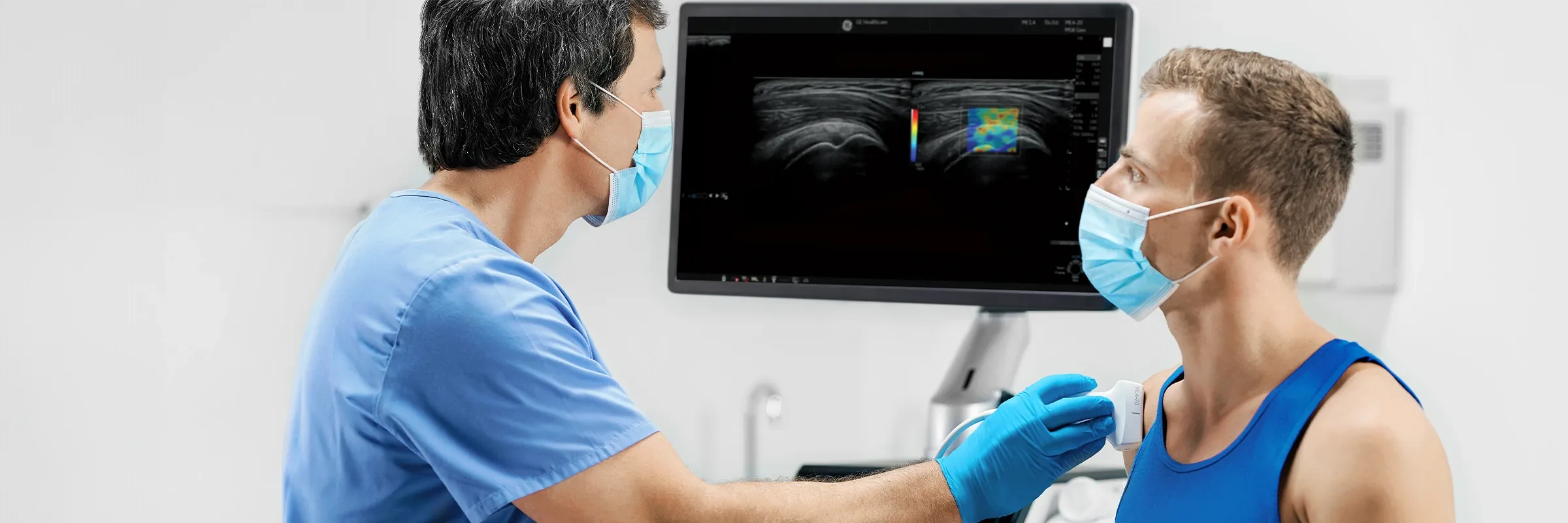
Advancements in artificial neural networks and deep learning have led to an increasing significance of AI in ultrasound procedures. PD Dr. André Farrokh from the University Hospital Schleswig-Holstein spoke positively about the enormous potential of this technology in various medical specialties at the 46th Dreiländertreffen (Tri-Country Meeting ) of the DEGUM in Mainz, emphasizing the responsibility in handling this advanced application.
Special importance in breast cancer diagnostics
A significant area of application for AI-supported ultrasound technology is in breast cancer diagnostics. Here, 3-D ultrasound data captured by automatic scanners are analyzed by AI systems to identify signs of malignant tissue changes. The performance of this technology is comparable to the skills of experienced medical specialists.
Ultrasound could fill a gap in dense breast tissue
In patients with dense breast tissue, where conventional mammography reaches its limits, AI-supported ultrasound shows its strengths. Approximately half of the patients have what is known as "dense" breasts. In such patients, the sensitivity of mammography drops from almost 90% to 50%. AI-supported automated breast ultrasound, used in a screening setting, reliably detects carcinomas even in dense glandular tissue. A study indicates that this method could detect about 3 additional carcinomas in 1,000 examinations!

Potential and challenges of data utilization
Although currently only a small portion of the data collected in hospitals is used for AI purposes, the provision of high-quality data while adhering to data protection is crucial. The more extensive the data base for training the AI, the more accurate and reliable the results will be.
AI support in evaluation of findings
Ultrasound requires a high level of expertise and has a steep learning curve. Here, the use of AI-supported, automatic screening procedures could represent a significant improvement in care. As Dr. Farrokh explains, such systems allow even assistant staff to capture ultrasound images, while doctors take over the evaluation. The AI system could pre-sort inconspicuous images, thereby reducing the workload and increasing precision.
Advanced solutions for breast cancer prevention

GE HealthCare offers systems such as LOGIQ™ Ultrasound and Invenia™ ABUS 2.0 for personalized breast cancer prevention, spanning from screening to aftercare. Supplementary screening with Invenia ABUS, the first FDA-approved ultrasound screening device, transforms reactive breast cancer prevention into a proactive approach. Clinical studies show that ABUS can increase the detection of small, invasive cancer types in dense breast tissue by more than half when used in addition to mammography. Early detection of cancer has significant prognostic implications.
The precise diagnosis and assessment of lesions are essential for an optimal treatment plan. Modern AI-supported ultrasound technologies enhance diagnostic accuracy and safety. These advancements enable personalized and effective treatment plans for each patient. They are also important for aftercare and medication treatments to prevent complications and minimize the risk of relapse. Monitoring of tissue is facilitated by these non-invasive, patient-friendly, and cost-efficient technologies, improving the patient experience.

Outlook for the future: AI ultrasound as the standard?
Currently, AI technology in the field of ultrasound is still in the testing phase. The first implemented devices are being evaluated, and development is progressing rapidly. It is expected that AI-supported ultrasound could increasingly become the standard within the next five years.
JB01264AFG



 Clinical specialty
Clinical specialty











